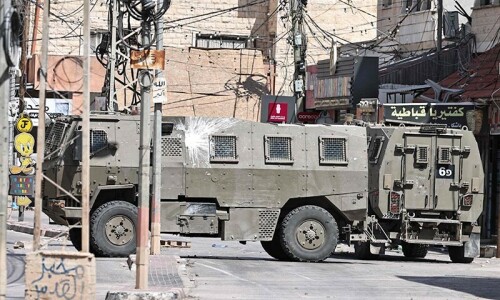COLOMBO: A human rights group blamed Sri Lankan security forces for the massacre of 17 aid workers 20 months ago, saying police and paramilitary forces shot the victims as they knelt on the ground and begged for their lives.
Meanwhile, new fighting on Tuesday in the north killed 27 Tamil Tiger rebels, the military said, and the government accused the separatists of damaging a hospital in a mortar attack.The killing of the Sri Lankan workers for the French aid agency Action Against Hunger horrified many here. No one has been charged in their deaths, and holding someone accountable is seen as a crucial test of the government’s commitment to human rights.European monitors blamed Sri Lanka’s security forces for the killings. The government denied the allegations and blamed the rebels.
University Teachers for Human Rights, a respected local group, issued a 29-page report on Tuesday that claimed to describe the killings of the 17 in the eastern town of Muttur in August 2006, after a fierce battle between troops and Tamil rebels.
The slain workers — all but one of whom were members of the ethnic minority Tamil ethnic group — were working on tsunami-relief projects at the time.
The researchers spoke to the victims’ families and residents of the town — more than a dozen people in all — and received information from within the police force, said Rajan Hoole, a spokesman for the group. They also talked to the people who collected the bodies, and carried out their own forensic analysis of the ammunition at the scene, he said.
According to the report, two police officers and one paramilitary home guard — accompanied by a team of commandos — entered the offices where the aid workers had holed up, accused them of helping the rebels, forced them to kneel down and summarily executed them as they screamed for mercy.
The security forces then covered up their role in the killings, the report said.
“The incident itself is by no means unique. These massacres have been going on for almost 25 years and no one has been tried or punished,” Hoole said. “What we have shown is that the justice system, the police, even the Supreme Court and the attorney general’s office are not delivering justice. They are basically covering up.”
In response to the international outcry over the massacre, the government set up a commission of inquiry 18 months ago to investigate 16 cases of human rights abuses including the killings of the aid workers.
The commission has not yet resolved any of its cases. An international panel of experts appointed to advise the commission resigned and stopped working Monday, saying the probe did not meet international standards and accusing the government of lacking the will to investigate the incidents.
Foreign Secretary Palitha Kohona said on Tuesday those concerned needed to remain patient.
“What we should do is wait for the outcome of the inquiry before rushing to judgment,” he said. He branded the university teachers’ report “a grave injustice to those looking forward to a just result from this inquiry.”—AP















































Dear visitor, the comments section is undergoing an overhaul and will return soon.